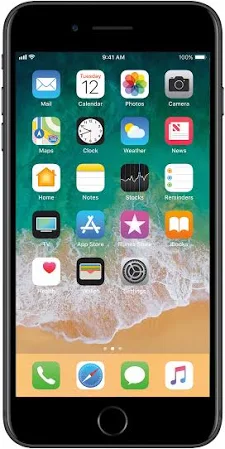Modern industries rely on highly specialized equipment and infrastructure to meet unique operational demands. In this environment, customizable cable solutions play a crucial role in ensuring efficient power transmission, data connectivity, and safety. Tailored to meet the specific requirements of different applications, these cables address challenges such as harsh environmental conditions, high mechanical stress, and strict performance standards. By adapting materials, designs, and features, manufacturers create solutions that align perfectly with the needs of diverse industrial sectors.
1. Why Customizable Cables Are Essential
Standard cables often fall short in meeting the specific demands of unique industrial environments. Customizable cables offer:
- Precision Fit: Tailored designs ensure seamless integration with equipment and systems.
- Enhanced Performance: Materials and configurations are optimized for application-specific challenges.
- Improved Reliability: Customized features increase durability and reduce downtime in critical operations.
Industries such as renewable energy, aerospace, mining, and robotics benefit greatly from bespoke cable solutions.
2. Key Features of Customizable Cable Solutions
Custom cable designs incorporate features that cater to the specific needs of their applications:
- Material Selection: Options include durable polymers, lightweight aluminum, and corrosion-resistant alloys.
- Insulation and Shielding: Tailored to provide thermal stability, abrasion resistance, and protection against electromagnetic interference (EMI).
- Flexibility: Designs accommodate high bending cycles for dynamic applications like robotics or machinery.
- Hybrid Configurations: Combine power, data, and control signals into a single cable to simplify installations.
3. Applications of Customizable Cables in Various Industries
Customizable cables find applications across a wide range of sectors, each requiring specific features to support operations:
- Renewable Energy: Durable cables withstand extreme weather conditions and high voltages in solar farms and wind turbines.
- Aerospace: Lightweight, heat-resistant cables support navigation, communication, and control systems.
- Mining: Heavy-duty cables resist abrasion, moisture, and high mechanical stress in harsh underground environments.
- Healthcare: Medical-grade cables ensure safe and reliable operation of diagnostic and surgical equipment.
4. Customization Options in Cable Manufacturing
Cable manufacturers offer a wide array of customization options to meet specific industrial needs:
- Conductor Materials: Copper, aluminum, and alloys provide options for conductivity, weight, and cost.
- Outer Jackets: Insulation materials, such as polyethylene or thermoplastic elastomers, are chosen for flexibility, durability, and resistance to environmental factors.
- Shielding Techniques: Protect cables from EMI, ensuring reliable data transmission in high-noise environments.
- Color Coding and Labeling: Simplifies identification and installation, particularly in complex systems.
5. Benefits of Customizable Cable Solutions
Tailored cable solutions deliver numerous advantages, including:
- Operational Efficiency: Optimized designs reduce energy losses and enhance system performance.
- Cost Savings: Long-lasting materials and precise configurations minimize maintenance and replacement costs.
- Ease of Installation: Custom lengths, colors, and terminations streamline installation processes.
- Compliance: Customized cables meet industry-specific safety and regulatory standards.
6. Challenges in Developing Customizable Cables
While the benefits of customizable cables are significant, manufacturers face certain challenges:
- Design Complexity: Balancing multiple performance requirements requires advanced engineering expertise.
- Solution: Collaboration with clients ensures designs meet all operational needs.
- Cost Considerations: Tailored solutions may involve higher initial costs.
- Solution: Manufacturers optimize designs to balance performance and affordability.
- Production Time: Custom cables often require longer lead times due to bespoke design and manufacturing processes.
- Solution: Advanced production techniques, such as 3D printing and modular designs, accelerate development.
7. Innovations in Customizable Cable Technology
Emerging technologies are enhancing the flexibility and performance of custom cables:
- Smart Cables: Embedded sensors enable real-time monitoring of performance and wear.
- Nanotechnology: Improves insulation, heat resistance, and durability while reducing cable weight.
- Sustainable Materials: Eco-friendly options like recyclable polymers and bio-based coatings reduce environmental impact.
- AI-Driven Design: Artificial intelligence optimizes cable configurations, predicting stress points and ensuring long-term reliability.
8. Sustainability in Custom Cable Manufacturing
Manufacturers are adopting sustainable practices to align with global environmental goals:
- Recyclable Materials: Designing cables for disassembly and recycling supports circular economy principles.
- Energy-Efficient Production: Optimized manufacturing processes reduce energy consumption.
- Waste Minimization: Advanced techniques recover and reuse materials during production.
9. Case Studies: Real-World Applications of Custom Cables
- Wind Turbines (Europe): Custom cables designed for high voltage and UV resistance improve performance in offshore wind farms.
- Autonomous Vehicles (USA): Hybrid cables combine power and data transmission, streamlining connectivity in advanced EVs.
- Mining Operations (Australia): Heavy-duty cables with abrasion-resistant jackets enhance safety and reliability in underground operations.
Conclusion:
Customizable cable solutions are essential for industries with unique operational demands, enabling efficient, reliable, and sustainable performance. By incorporating advanced materials, innovative designs, and tailored features, manufacturers provide cables that meet specific requirements and improve overall system functionality. Companies like Ducab are at the forefront of this innovation, delivering bespoke cable solutions that align with industry needs and sustainability goals. As technology evolves, customizable cables will play an even greater role in powering the industries of tomorrow.
FAQs: Customizable Cable Solutions for Unique Industrial Needs
- Why are customizable cables important for industrial applications?
Customizable cables address specific operational challenges, ensuring reliable performance and efficiency in unique environments. - What features can be customized in industrial cables?
Features like materials, insulation, shielding, and hybrid configurations can be tailored to meet specific requirements. - What industries benefit from customized cable solutions?
Industries such as renewable energy, aerospace, mining, robotics, and healthcare rely on bespoke cables for specialized applications. - How do custom cables improve efficiency?
Optimized designs reduce energy loss, improve durability, and streamline installation, enhancing overall system efficiency. - What challenges exist in manufacturing custom cables?
Challenges include balancing performance with cost, managing design complexity, and ensuring timely production. - How does Ducab support customizable cable solutions?
Ducab provides advanced cable solutions tailored to meet the specific needs of diverse industries, combining innovation with sustainability.



